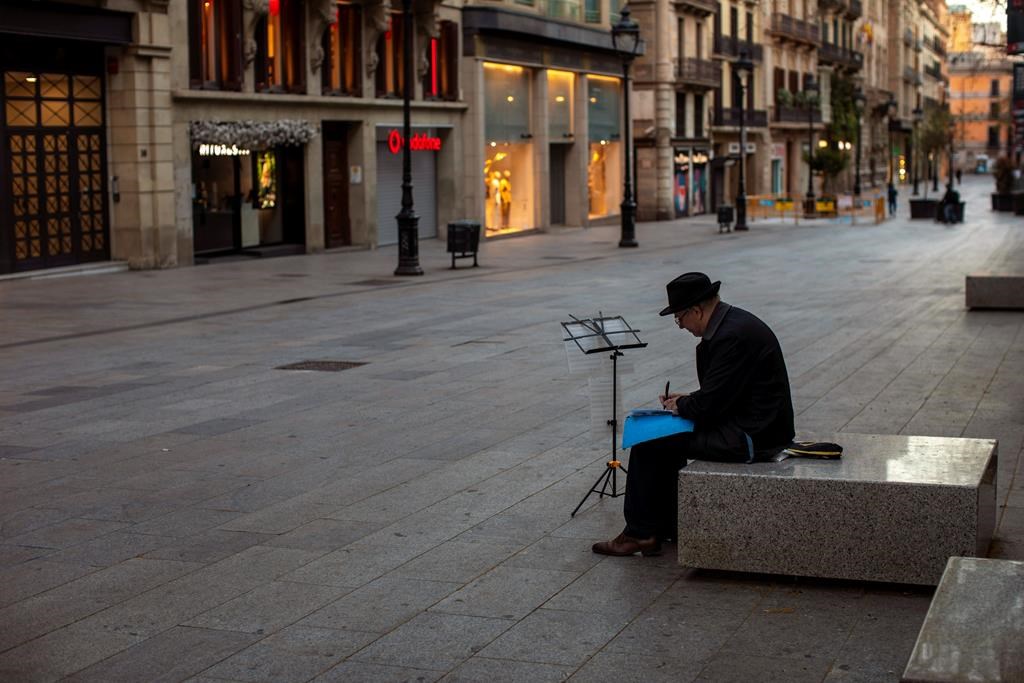A Winnipeg couple taking a lengthy vacation in Spain experienced that country’s coronavirus crisis first-hand, as they scrambled to get back home before everything shut down.

Nicole DeMelo told 680 CJOB she and her husband Mauricio were on a three-month vacation in a small Spanish beachside town when the country started to go into full lockdown.
The couple had a tough decision, she said, whether to stick it out and hope the quarantine ended soon, or scramble to find a ticket back to Canada. They had an opportunity to self-quarantine in a house for two weeks, but DeMelo said it was unlikely that would be enough.
“Given what’s happening in Italy,” she said, “it’s logical that in two weeks it won’t be over. Last night I sent a message to my family saying we’ve decided we’re not going to stay here.
“Neither of us have experienced any symptoms at all, but a lot of frustration. It’s a stressful time.”
DeMelo said she reached out to the Canadian government after discovering that a last-minute flight home would cost up to $9,000, but was told she needed to make her own travel plans – or potentially not be able to get back anytime soon.
“I’m a really proud Canadian,” she said.
“I feel like usually, being Canadian has lots of benefits, but right now I’m feeling like not much is being done to help us.
“The way I interpreted it was ‘fend for yourself, get home if you have the money’. It’s pretty frustrating and pretty scary.”
In a lockdown similar to the one already imposed in Italy, Spain’s 46 million people will be allowed to leave their homes only to buy food and medicine, commute to work, go to hospitals and banks, or take trips related to the care of the young and the elderly.
All schools and universities are closed, along with restaurants, bars, hotels and other non-essential retail businesses.
DeMelo said she was able to find a return flight to and from Barcelona – which was cheaper than a direct flight – and the couple was hoping to fly through Frankfurt, Germany to Toronto and eventually Winnipeg on Monday morning.
Confused about COVID-19? Here are some things you need to know:
Health officials say the risk is very low for Canadians, but they caution against travel to affected areas (a list can be found here).
If you do travel to these places, they recommend you self-monitor to see whether you develop symptoms and if you do, to contact public health authorities.
Symptoms can include fever, cough and difficulty breathing — very similar to a cold or flu. Some people can develop a more severe illness. People most at risk of this include older adults and people with severe chronic medical conditions like heart, lung or kidney disease.
To prevent the virus from spreading, experts recommend frequent handwashing and coughing into your sleeve. And if you get sick, stay at home.
For full COVID-19 coverage from Global News, click here.










Comments